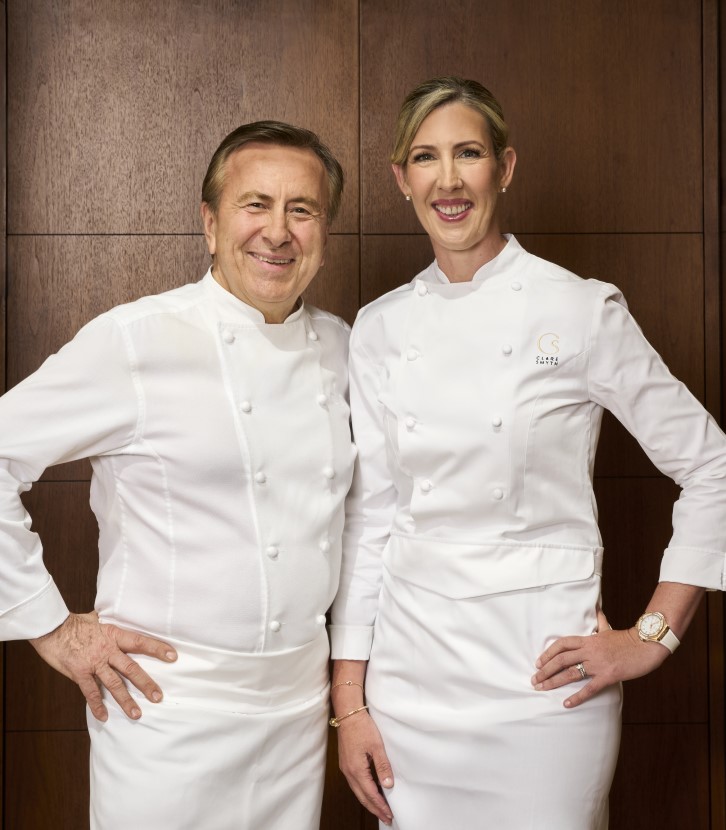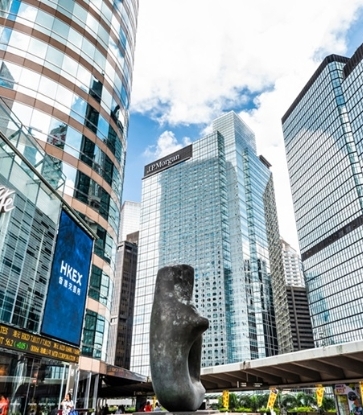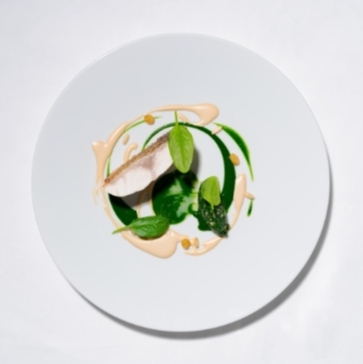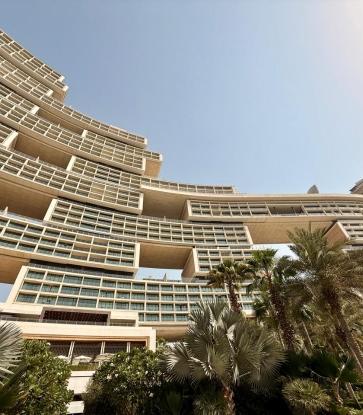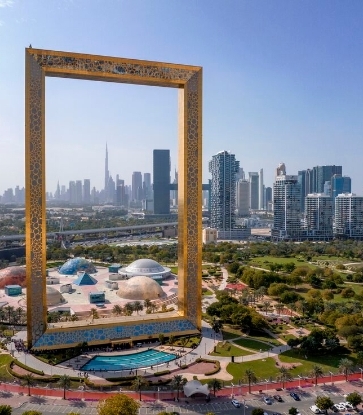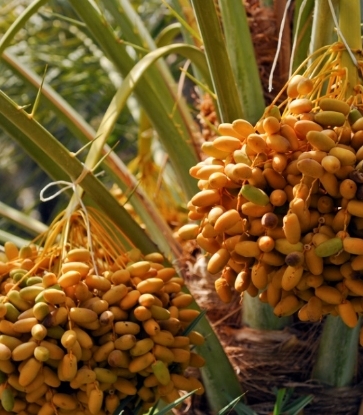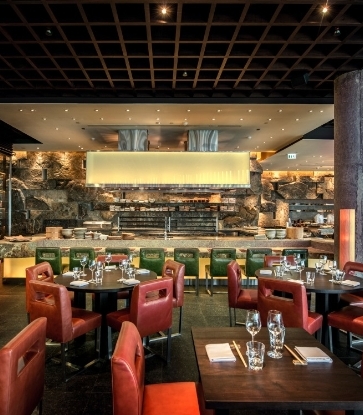For the three brothers — Mohammad, Wassim and Omar Orfali — behind Bib Gourmand-rated Orfali Bros, the sky is the limit.
“We speak food. Food is our language.”

Born and raised in Aleppo, the Orfali brothers grew up in one of the Syrian city’s most prominent and influential families, which didn’t really welcome the idea of a chef career. Despite not garnering enough support from friends and family, Mohammad, the eldest brother and most recognised of the three brothers, decided to enrol in a culinary school. “My father’s an engineer. My mom’s a teacher. Most of my family members are into business, and they all have higher degrees. I wasn't that good in school. I entered the culinary world by chance through the culinary school, but I fell in love with it,” he said.
United By Brotherhood And Passion
By pursuing his passion, Mohammad set an example for his younger brothers – and it wasn’t that long before his younger brothers Wassim and Omar found inspiration in what he did and followed suit by building culinary careers around the world. Since then, the Orfali brothers shared a dream: opening a restaurant of their own. “I moved to Kuwait then to Dubai; Waseem went to Moscow, then to Kazakhstan onto Egypt; and Omar stayed in Aleppo then moved to Beirut. I thought for long how I can bring the family together, so I decided to bring my brothers to Dubai. Wassim came to Dubai in 2012, and Omar in 2013. From that time onward, I wanted us to do something together,” Mohammad said
In 2015, the brothers started their first venture together: cooking courses named “The Orfali Bros Masterclass” in 2017. They delivered more than 24 courses by the beginning of the pandemic in 2020. The course participants were amazed by the originality of their dishes and pastries, and were constantly encouraging them to open a business of their own.
Driven by their unflinching perseverance to make their dream come true, the brothers opened Orfali Bros in 2021 in the midst of the global pandemic, with Mohammad handling cooking, Wassim developing pastries, and Omar taking care of pastry execution.
The Orfali Bros Philosophy

The Syrian brothers get playful with ingredients belonging to their own culture, while infusing them with some of other cultures. Orfali Bros is a playground, where they merge Aleppian and other food cultures on the plate. For them, no rules apply to their kitchen, no boundaries limit their creativity, and no borders obstruct their exploration.
“We’re not out of the box – there’s no box for us. In this cosmopolitan city called Dubai, which is home to more than 200 nationalities, food should have a personality that satisfies them all. Our food personality stems from the three brothers, the chefs, the family, and the team. We don’t follow rules,” Mohammad said.
“What makes us different is that we believe that you and I eat the same. At Orfali Bros, we serve different backgrounds and taste palates. We believe that food brings people together,” he added.
Related: Learn more about the journey of Akmal Anuar of one-MICHELIN-starred 11 Woodfire
The Best Of Both Worlds
Not only do the Orfali brothers offer an innovative take on traditional Aleppian food and pastries, but they also unleash their creativity in their bistro’s distinctive décor. As soon as one sets foot inside Orfali Bros, they will be drawn to the cohesiveness of its interior, featuring a mélange of Muslim architecture with a hint of Renaissance and a striking test kitchen mimicking a tower, or “castle” as Mohammad envisions it.
The idea of this kitchen emerged as the brothers couldn’t work in the same kitchen, due to the different cuisines and equipment with which they all deal. For Mohammad, this is where their innovation and creativity stem from. “Pastry is different than food. My brothers’ way of working differs from mine. We built the kitchen to separate the pastry and food kitchens from each other. But even though it’s divided in two, we constitute one entity.”
The brothers also wanted an open kitchen to reflect their belief in a borderless world. “We wanted diners to be seated facing the kitchen and have a sense of dining inside it. At Orfali Bros, we have a transparent culture between us, as chefs and team, and our customers. We want to tell people that there are no unsung heroes behind the scenes.”

What To Order At Orfali Bros
The Eat H is one of their most popular dishes. It is a fusion of the Aleppian, Armenian, Kurdish and Turkish ways of preparing bulgur wheat with tomato — and a perfect representation of the Orfali family origins. The Turks call this dish "kisir," whereas Aleppians and Armenians call it "eech." However, it comes from Assyrian roots. Armenians cook it with lemon juice, Aleppians with chili paste and pomegranate molasses, Turks with chili, and Kurds with cumin.
"I combined all four cooking techniques to represent my heritage. My last name is Orfali, deriving from the Turkish city of Urfa, while I come from Aleppo and am a descendent of an Armenian great-great-grandmother," Mohammad explained. "I serve this dish with shiso leaves, instead of vine leaves, lettuce or cabbage. Eat H is a bite bursting with flavours and textures."


Imam Bayildi, meanwhile, is an iconic Turkish dish that turned eggplant moussaka into a full fried eggplant cooked with tomato sauce, onions and chili. "I was inspired by the Turkish presentation of this dish – the eggplant topped with tomato sauce. Then I came up with Orfali’s Imam Bayildi, which is grilled eggplant – instead of fried – topped with makdous muhammara, tarator, toasted walnuts, verjuice and nasturtium," said Mohammad.
People around the world love eggplants, and all the ingredients in Orfali’s Imam Bayildi are local Emirati. The dish offers a mix of the smoky flavour coming from the eggplant, the tangy flavour from the muhamarra’s lacto-fermented chili and fermented honey, the creamy texture of the yogurt and tahini, and the crunchiness and bitterness of the walnuts. "It’s a symphony in one bite," he added.

Guess What is a creation that started as Mohammad's own personal take on "fattush." First created on one of his cooking shows on TV, the dish was shunned by many who criticised him for "messing with Arab cuisine".
"Then I replaced Arab bread with sourdough bread and added to it feta cheese and Kalamata olives, calling it my interpretation of the Greek salad, but Greeks didn’t accept it either. Then I called it green gazpacho. The Spanish also thought that I was modifying their food culture," he said.
"I insisted on adding it to the menu when I opened my restaurant, but was scared of people’s reaction. I was modifying its name every day, until we had to choose a name, so I went for ‘Guess What'," he said. Today, the dish is a blend of "everything green" found in the traditional fattush and lacto-fermented tomatoes, in which every ingredient offers a different element, crunch and texture.



